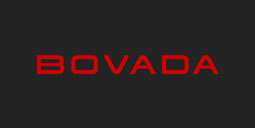In addition to understanding the EU directive, the Criminal Justice (Money Laundering and Terrorist Financing) (Amendment) Bill 2019 would toughen current legislation, for example, usage of “virtual monies for terrorist financing and restricting the usage of cards.
“Placing digital versions of foreign monies on the blockchain means they could then become key parts of contracts that are smart. That would unlock much of the possible creation of blockchain by enabling parties to make automatic agreements, such as direct trades in such currencies, instead of having to use a cryptocurrency as a proxy. ”
The Cabinet, the executive organ of the government of Ireland, has approved a bill that would contribute to the European Union (EU) Fifth Anti-Money Laundering (AML) Directive, the Irish Times reported Jan. 3.
If the bill goes, financial institutions will be required to perform stricter due diligence in respect to new clients, and would be prohibited from opening anonymous safe deposit boxes. Also, the bill will reportedly allow the Garda and the Criminal Assets Bureau to access bank documents from the duration of money laundering investigations.
“The reality is that money laundering is a crime that helps serious criminals and terrorists to work, destroying lives in the process… Criminals attempt to exploit the EU’s open borders and EU-wide measures are critical for this reason. Ireland strongly supports the provisions at the EU money laundering directive.
Released at Thu, 03 Jan 2019 23:50:00 +0000
The directive — which came into force on July 9, 2018 — places a new legal framework for European financial watchdogs to control digital currencies to be able to protect against money laundering and terrorism financing.
In particular, the directive will extend the scope to crypto platforms and wallet suppliers, finish the anonymity of savings and bank accounts, and enhance information exchange among authorities. EU member countries must incorporate the directive into their respective national legislation by Jan. 20, 2020.
Last month, the European Union Blockchain Observatory and Forum created a case for electronic versions of foreign monies on a blockchain, stating:
Also in December, crypto-friendly fintech startup Revolut obtained an EU banking license by the Bank of Lithuania. Revolut’s most users in the United Kingdom, France, Germany, and Poland are expected to obtain a “true current account plus a non-prepaid debit card. ” Also, consumers ’ deposits are also covered around €100,000 (roughly $113,500) underneath the European Deposit Insurance Scheme.
Irish Gov’t Approves Anti-Money Laundering Bill Affecting Cryptocurrency - July 2025
EXPERTLY REVIEWED
MOBILE FRIENDLY
FAST PAYOUTS
- CasinoRatingBonusVisit Casino
Get your 100% Match Bonus up to $1000!
200% match bonus up to 2000
Up to 5 BTC
100% match bonus + 180 free spins
Get up to 1 BTC on First Deposit!
Welcome bonus up to 1.5BTC + 250 free spins
Get your 5 BTC Welcome Bonus
Top Rated







Search
Casino List
- Bovada Casino
- 7bit Casino
- Bitstarz Casino
- Sun Palace Casino
- Ignition Casino
- Tangiers Casino
- Nitrogen Sports Casino
- Casumo Casino
- Fortunejack Casino
- Mars Casino
- Mbit Casino
- Cafe Casino
- Drake Casino
- Grand Fortune Casino
- CryptoReels Casino
- Wild Casino
- Betchain Casino
- Oshi Casino
- Bitcoin Penguin Casino
- Joe Fortune Casino
- Vegas Casino.io















